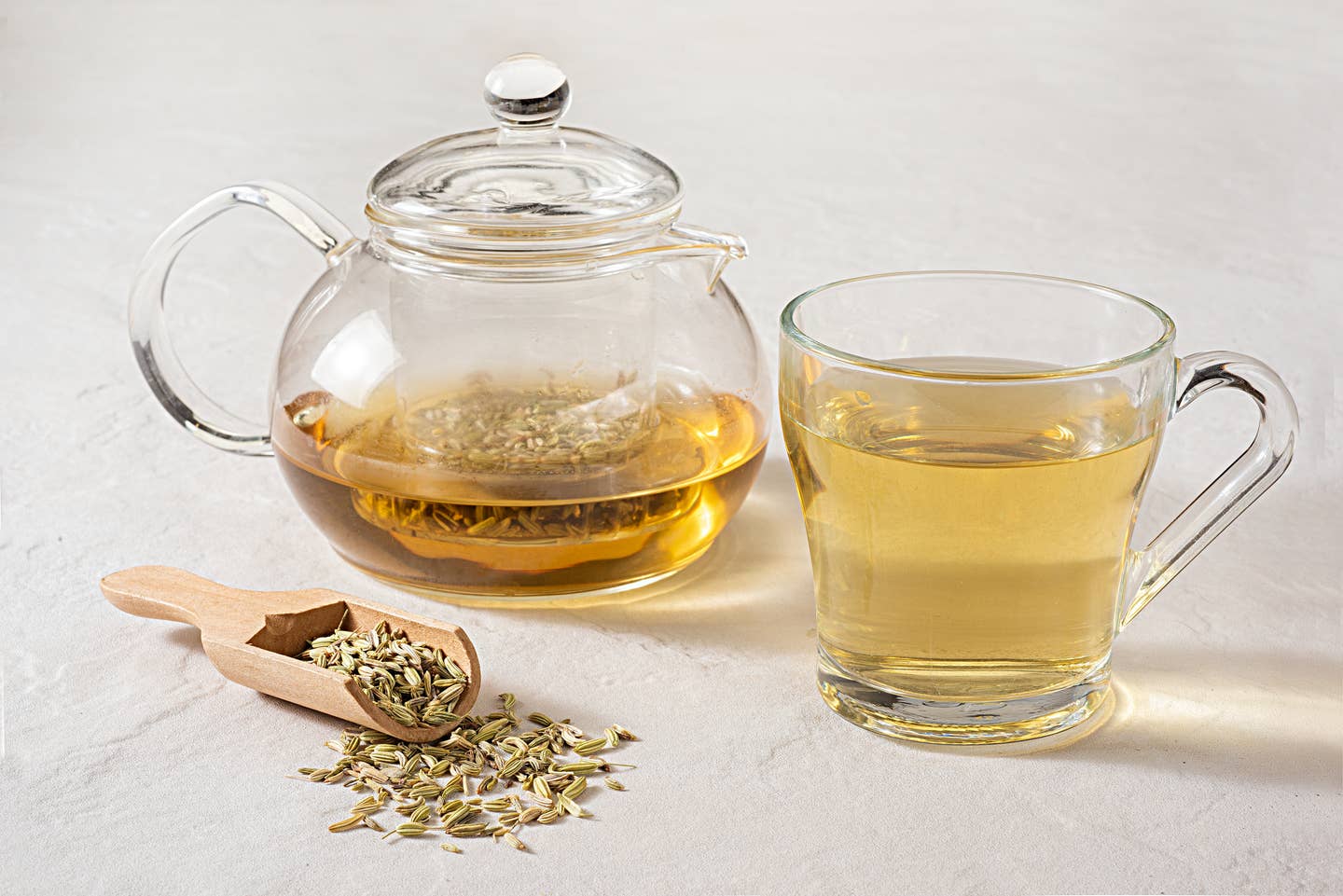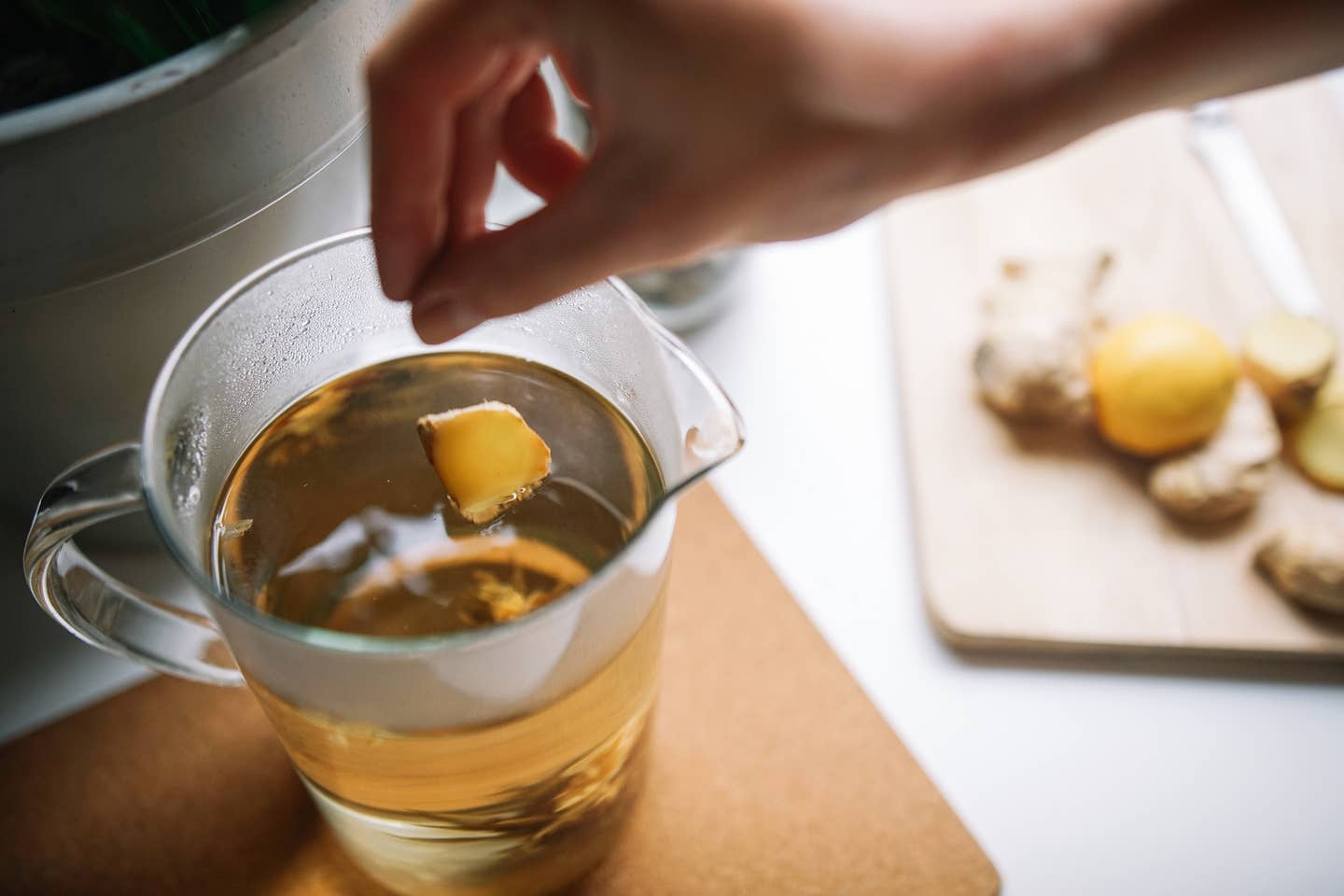
The Connection Between Sleep, Diet and Alcohol, According to New Study
When you don't get a good night's sleep, chances are the next day you eat junk. But it may be that you didn't get a good night's sleep because you ate junk. A new study out of Finland links the quality of your sleep with your diet and alcohol consumption. Specifically, eating badly and drinking alcohol (often due to stress) can rob you of the restful sleep cycle your body needs. So don't blame poor diet on sleep. Blame poor sleep on a terrible diet.
It's long been known that lack of sleep can drive up the release of the hormone called ghrelin, which is known to promote hunger the next day. And studies have found that alcohol can disrupt and shorten your REM sleep cycles. But now it appears that a junk-food diet and alcohol consumption can both hurt your sleep cycles, and people who eat the most fiber-filled foods, which are plant-based foods full of vegetables, fruit, whole grains, nuts, and seeds, also sleep better.
Want to sleep better and wake up rested? Change your diet
For anyone suffering from lagging energy and who finds themselves reaching for all the wrong foods to bolster themselves up during the day, the key is to try and get more restful sleep, which is where diet and alcohol can play a role, this study found.
To experience more restorative sleep and have a more restful night, eat healthier plant-based foods throughout the day. Tired? Look to your diet for the solution: Skip the processed food and eat a diet of whole, plant-based foods, and drink less alcohol and you'll begin to experience the kind of restorative sleep your body needs.
If you're not sleeping well, get more fiber, drink less alcohol
Sleep-time recovery, where your body slips into a healthy deep sleep and conducts all the important repair work and restorative functions, is now linked to eating a healthy diet and consuming less alcohol, according to a new study from the University of Finland. The researchers measured the physical and mental well-being of overweight adults and found a direct link between sleep and diet.
The new study measured the sleep quality of 252 stressed individuals who were overweight, living in three different cities. By monitoring their sleep-time heart rate on three consecutive nights the researchers found that the subjects' parasympathetic nervous system – which plays a key role in recovery – was not able to activate long enough during sleep time, meaning the subjects woke up not feeling rested.
For restful sleep, take note of what you're eating and why
The study participants' eating behavior was also measured using questionnaires, and their daily diet quality and alcohol consumption was quantified over a 48-hour period. The goal was to see which subjects were eating according to hunger and satiety cues or due to other stressors. The data was collected as a baseline starting point before a lifestyle intervention.
Higher sleep-time parasympathetic activity, which corresponds to better physiological recovery, was found among those who ate a healthier diet quality and consumed less alcohol.
The study also found that better sleep also follows smarter eating behavior, especially when if comes to why people eat (boredom, energy levels, or cravings) as opposed to actual hunger cues. Study participants with healthier stress levels were able to eat healthier overall. The less stressed participants also routinely ate more fiber (in plant-based foods) and had more dietary self-control and drank less alcohol than those with a poorer stress balance.
There was no "causality" found, however, so it was unclear whether eating better led to sleeping better and more self-control or the other way around: Self-control leads to eating healthier and better sleep. There are plenty of foods that will help you sleep better.
Bottom Line: To sleep better and feel more rested, eat more plant-based and curb the alcohol
There's a connection between the quality of your sleep, the health of your diet, and the amount of alcohol you drink, a study from Finland found. To be your all-around healthiest, eat plant-based foods, drink less, and you may find that your sleep quality improves.
More From The Beet






